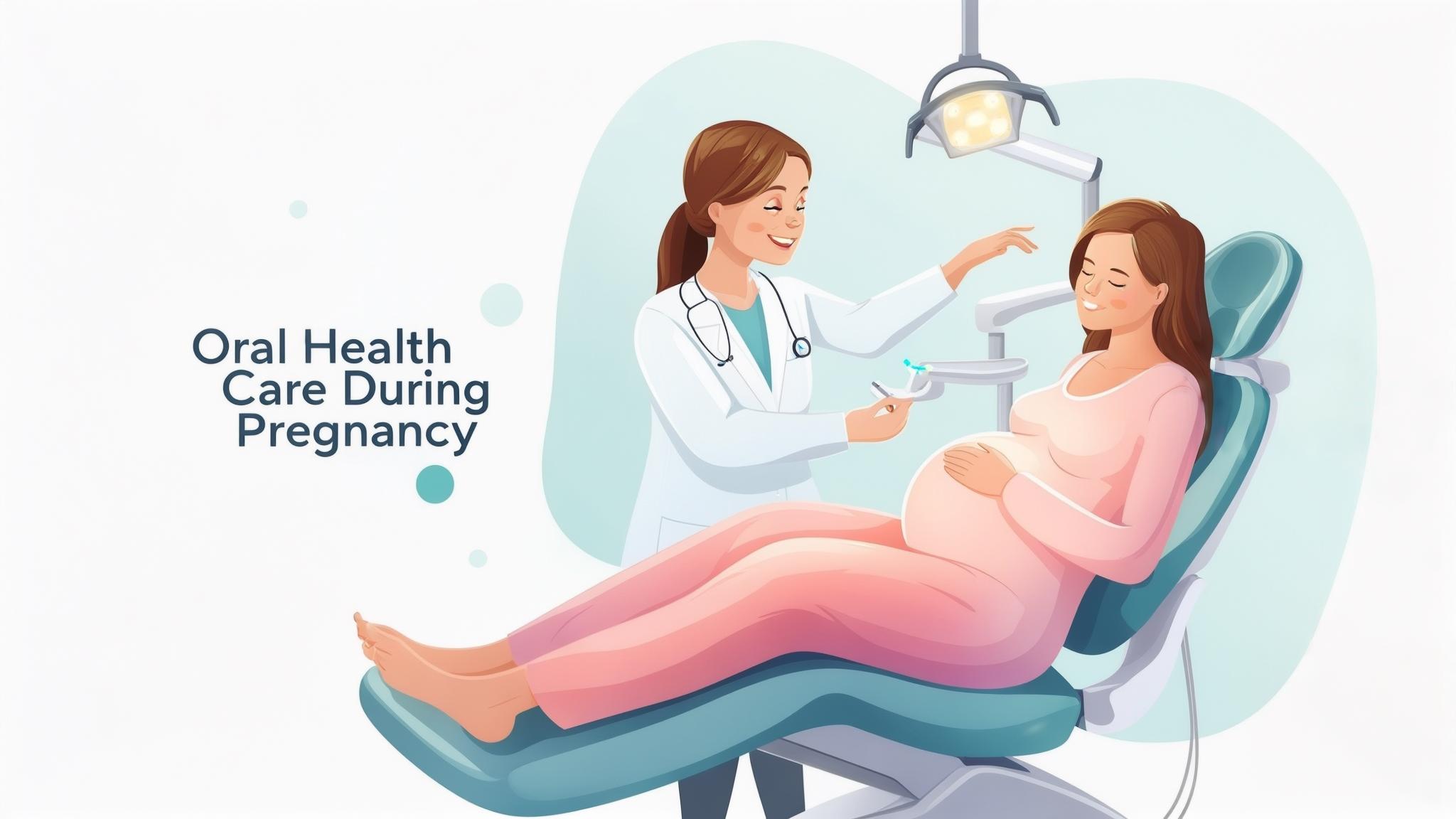The Importance of Oral Health During Pregnancy
Pregnancy is a transformative time in a woman's life, filled with excitement and anticipation. However, amidst all the changes, maintaining oral health can sometimes be overlooked. It's crucial to understand that oral health is a significant part of overall health, especially during pregnancy. Hormonal changes can affect your gums and teeth, making regular dental check-ups essential.
Pregnancy affects dental health in various ways. Hormonal fluctuations can lead to increased sensitivity and a higher risk of gum disease. This article aims to inform you about the necessity of dental exams during pregnancy and how they can help maintain both your oral and overall health.
The Connection Between Oral Health and Pregnancy
Hormonal Changes and Their Impact on Dental Health
During pregnancy, your body undergoes significant hormonal changes. These changes can increase the risk of gingivitis, a condition where the gums become swollen, red, and bleed easily. You might also notice changes in your saliva composition, which can affect your oral health.
Common Dental Issues During Pregnancy
Pregnancy Gingivitis: This is the most common dental issue during pregnancy, affecting about 60-70% of pregnant women. It's essential to manage this condition to prevent it from progressing to more severe gum disease.
Pregnancy Tumors: These are non-cancerous growths that can occur on the gums during pregnancy. Although they sound alarming, they usually disappear after childbirth.
Tooth Decay and Erosion: Changes in eating habits and increased acidity in the mouth can lead to tooth decay and erosion, making dental care even more critical.
Importance of Dental Check-Ups During Pregnancy
Regular dental check-ups during pregnancy are vital for preventive care and early detection of potential issues. By maintaining good dental health, you contribute to your overall health and the health of your baby.
Dental and medical associations strongly recommend dental visits during pregnancy. These visits ensure any potential problems are caught early, reducing the risk of complications.
Timing of Dental Check-Ups
Ideal Timing for Dental Exams During Pregnancy
- First Trimester: It's safe to have dental check-ups during the first trimester, but extensive treatments are usually postponed.
- Second Trimester: This is the ideal time for dental exams and treatments. The baby's organs have developed, and the mother is usually more comfortable.
- Third Trimester: While dental exams are still safe, the mother's comfort may be a concern, and it might be harder to sit in a dental chair for extended periods.
Emergency Dental Care Considerations
If you experience a dental emergency, don't hesitate to seek care. Your dentist can help manage pain and address urgent issues safely.
What to Expect During a Dental Exam
During a dental exam, you can expect a comprehensive oral examination to assess your gums and teeth. X-rays may be taken with special precautions to protect you and your baby.
The dentist will perform a cleaning and provide preventive treatments to maintain your oral health. They will also discuss any changes in your dental health due to pregnancy.
Special Considerations for Dental Treatments
Safe Dental Procedures During Pregnancy
Most routine dental procedures are safe during pregnancy. However, always inform your dentist about your pregnancy so they can take necessary precautions.
Medications and Anesthesia Considerations
Your dentist will consider the safest medications and anesthesia options for you. Local anesthesia is generally safe, but it's essential to avoid certain medications.
Postponing Non-Urgent Procedures
Non-urgent dental procedures may be postponed until after the baby is born, unless they are necessary for your health.
Oral Hygiene Tips for Pregnant Women
Importance of Maintaining Good Oral Hygiene
Keeping up with oral hygiene is crucial during pregnancy. It helps prevent gum disease and tooth decay.
Recommended Oral Care Practices
- Brushing Techniques: Use a soft-bristled toothbrush and fluoride toothpaste. Brush twice a day and pay extra attention to the gum line.
- Flossing: Floss daily to remove plaque between your teeth.
- Use of Mouthwash: Consider using an alcohol-free mouthwash to reduce plaque and gingivitis.
Dietary Considerations for Oral Health
Eating a balanced diet rich in vitamins and minerals supports both your and your baby's health. Limit sugary snacks and drinks to reduce the risk of tooth decay.
Conclusion
Dental exams during pregnancy are crucial for maintaining overall health. As a pregnant woman, prioritizing your oral health can have positive effects on your pregnancy and the health of your baby. Remember, taking care of your teeth is an essential part of taking care of yourself and your growing family.
References
- American Dental Association
- Centers for Disease Control and Prevention
- National Institute of Dental and Craniofacial Research
For further reading, consider visiting these organizations' websites for more information on dental health during pregnancy.

